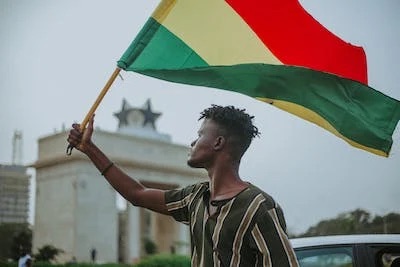
Sociocultural practices in Ghana
Ghana, situated in West Africa, is a nation steeped in a rich tapestry of history and culture. Its capital and largest city, Accra, bustles with life amidst a backdrop of thriving markets and historical landmarks. In 1957, Ghana achieved independence from British colonial rule, marking a pivotal moment in its trajectory towards self-governance.
Known globally for its significant contributions to industries such as cocoa production and gold mining, Ghana stands as a beacon of economic resilience and natural resource wealth in the region. The Ghanaian people, renowned for their warmth and hospitality, inhabit diverse landscapes that span from picturesque coastlines to expansive savannahs and lush rainforests. Visitors and locals alike are drawn to iconic sites such as Cape Coast Castle, Lake Volta, and Mole National Park, each offering a glimpse into Ghana’s natural beauty and storied past.
Beyond its physical attributes, Ghana’s sociocultural fabric is intricately woven with practices that foster social cohesion and community harmony. Here’s a closer look at five of these practices:
1. Extended Family Structure: Central to Ghanaian society is the concept of extended families. Here, relatives beyond the nuclear family unit play vital roles in providing support, sharing responsibilities, and nurturing a strong sense of belonging among its members.
2. Traditional Festivals: Throughout the year, Ghana comes alive with vibrant celebrations like the Homowo and Asafotufiam festivals. These events serve not only as joyous occasions filled with music, dance, and feasting but also as powerful symbols of cultural heritage and community solidarity.
3. Respect for Elders: Respect for elders forms a cornerstone of Ghanaian values. This tradition not only honors the wisdom and experience of older generations but also ensures the continuity of cultural practices and societal norms across time.
4. Community Spirit: Ghanaians exhibit a strong sense of communal spirit through activities like mutual help, where neighbors collaborate on shared endeavors such as farming or construction projects. This collective effort fosters unity, cooperation, and a shared responsibility towards communal well-being.
5. Customary Practices and Ceremonies: Traditional rites of passage, including naming ceremonies, weddings, and funerals, hold profound significance in Ghanaian culture. These ceremonies serve as important milestones that bind communities together, reaffirming cultural values and strengthening social bonds.
READ ALSO: Asanteman Queenmothers Day Celebrated with Flourishing Feast Ghana Event at Manhyia Palace
To truly appreciate the depth and impact of these sociocultural practices, one could delve deeper into each, exploring their historical roots and modern-day relevance. Engaging with local communities through interviews and firsthand experiences would provide invaluable insights into how these traditions continue to shape Ghanaian identity and promote social harmony.
Ghana’s allure lies not only in its natural wonders and economic prowess but also in the enduring traditions that underscore its social fabric. By celebrating and preserving these cultural practices, Ghana stands as a testament to the enduring spirit of unity and resilience that defines its people.
